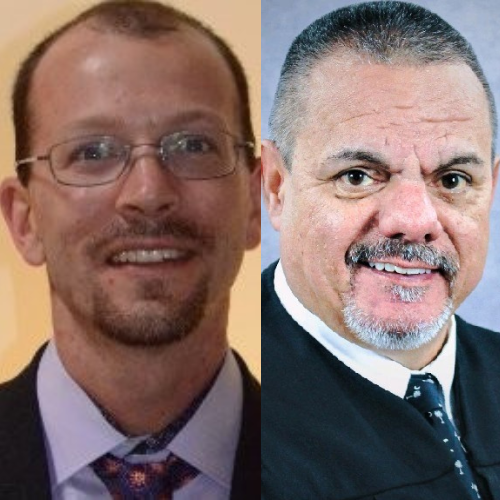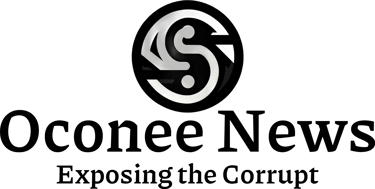Judge Singleton's Misinterpretation of Supreme Court Order Leads to Controversial Jailing of Dr. Jason Boyle
OCONEE PROBATE COURTOCONEE COUNTY JAIL


Judge Danny Singleton's lack of formal legal education and knowledge is having a detrimental impact. Allegedly, he is mixing criminal matters into probate proceedings and treating individuals in probate court as if they were criminal offenders.
Dr. Jason Boyle, PhD, currently engaged in a hunger strike to protest his incarceration, was jailed on May 29, 2024, by Judge Danny Singleton. The decision to imprison Dr. Boyle stems from his use of electronic devices to record in the court lobby and during interactions with the court clerk, which Judge Singleton deemed a violation of South Carolina Supreme Court Administrative Order dated March 09, 2023. However, there are growing concerns that Judge Singleton misinterpreted the order, leading to a contentious debate about the balance between court regulations and constitutional rights.
The Supreme Court Administrative Order, issued on March 9, 2023, by Chief Justice Donald W. Beatty, outlines specific guidelines for the use of electronic devices within South Carolina courthouses. The order aims to maintain security and prevent disruptions while acknowledging the integral role of these devices in modern life. Key provisions of the order include:
Common Areas: Individuals may possess and use electronic devices in common areas like lobbies and hallways, provided they are subject to security screening. The use of such devices near the Clerk of Court's office for court business is prohibited, and devices must be on silent mode at all times.
Courtrooms: While possession of electronic devices is allowed, their use in courtrooms requires express permission from the presiding judge. Absolute bans on possession are not permitted, but judges can restrict use if it interferes with justice or poses a security threat.
Prohibited Uses: Taking photographs, making audio or video recordings, and broadcasting from within a courthouse or courtroom are generally prohibited, except as allowed under specific rules.
Dr. Boyle's case began in October 2023 when he advised a man in the Probate Court lobby of his right to initiate the probate process pro se, which led to a ban issued by Judge Singleton. Tensions escalated when Dr. Boyle recorded his interactions in the court lobby and with the court clerk and subsequently published the recordings online. Judge Singleton invoked the Supreme Court order to justify detaining Dr. Boyle, claiming the recordings constituted a violation.
However, supporters of Dr. Boyle argue that the judge misinterpreted the order. The Supreme Court's guidelines explicitly allow the possession and limited use of electronic devices in common areas of courthouses. They also state that the use of devices in courtrooms requires judicial permission but does not support an outright ban on possession. Moreover, the order emphasizes that violations should result in confiscation and potential contempt sanctions, but it does not mandate incarceration without due process.
Dr. Boyle’s legal team asserts that his recordings were made in common areas, where the Supreme Court order permits the use of electronic devices, subject to specific restrictions. They argue that his actions were within the bounds of the order and that his subsequent arrest and imprisonment represent a misapplication of judicial authority.
Since his incarceration, Dr. Boyle has been on a hunger strike for 84 hours, protesting what he sees as judicial overreach and an infringement on his First Amendment rights. Confined in solitary confinement, he is enduring harsh conditions, further exacerbating concerns for his health and well-being.
This incident raises critical questions about the interpretation and application of court orders and the protection of constitutional rights within judicial proceedings. The legal community and human rights advocates are closely monitoring Dr. Boyle’s situation, calling for a reassessment of the actions taken by Judge Singleton and urging for greater clarity in the enforcement of court regulations.
Dr. Boyle's case underscores the delicate balance between maintaining court security and upholding the fundamental rights enshrined in the Constitution. As his protest continues, it serves as a powerful reminder of the importance of judicial accountability and the protection of free speech in all public institutions.
Background on Dr. Jason Boyle
Dr. Jason Boyle holds a PhD in Physical Chemistry from the University of Utah and has a notable academic and professional background. His educational journey includes a BA in Chemistry from Eastern Michigan University and a postdoctoral fellowship from the American Society for Engineering Education. Dr. Boyle has made significant contributions to the field of physical chemistry, with numerous publications in prestigious journals, and has presented his research at various national conferences.
His professional experience spans roles as a researcher, educator, and entrepreneur. Dr. Boyle has served as a chemistry and physics teacher in various schools, a research chemist at the Navy Surface Warfare Center, and held supervisory roles in several scientific projects. His extensive background highlights his dedication to scientific inquiry and education, making his current predicament particularly troubling for his supporters.
Background on Judge Danny Singleton
Judge Danny Singleton has a career spanning over three decades in local law enforcement and municipal courts. He began with the Westminster Police Department in 1990, later serving with the Seneca Police. In November 1998, he was appointed as the Municipal Court Judge for the City of Seneca. His judicial experience also includes serving on the bench in Westminster, Walhalla, and as a backup judge for the Town of Salem.
However, it is important to note that municipal courts primarily deal with petty crimes and minor civil disputes, which are less demanding of legal knowledge. Critics argue that this limited scope of experience does not adequately prepare Singleton for the probate court, where a deep understanding of intricate legal principles governing estates, wills, and trusts is crucial.
Making matters worse, Singleton only completed high school and went on to earn a two-year police science degree from Oconee Tri-County Technical College. He does not hold any formal college degree. In the probate court, where cases are often intricate and demand in-depth legal knowledge, Singleton reportedly relies heavily on the arguments of crooked lawyers to make his rulings. This puts pro se litigants at a significant disadvantage, as the judge tends to accept whatever attorneys say as accurate, given his lack of legal training. This has resulted in rulings that frequently disfavor pro se litigants, even when some of these litigants understand the law better than the judge and the lawyers involved.
Reports from within the court system indicate that Singleton's lack of formal legal education and knowledge is having a detrimental impact. Allegedly, he is mixing criminal matters into probate proceedings and treating individuals in probate court as if they were criminal offenders. Singleton has been threatening to issue arrest warrants and is micro-managing his staff as if they were pets with a neck ring.
The Larger Implications
This incident raises critical questions about the interpretation and application of court orders and the protection of constitutional rights within judicial proceedings. Dr. Boyle's case underscores the delicate balance between maintaining court security and upholding the fundamental rights enshrined in the Constitution. As his protest continues, it serves as a powerful reminder of the importance of judicial accountability and the protection of free speech in all public institutions.
